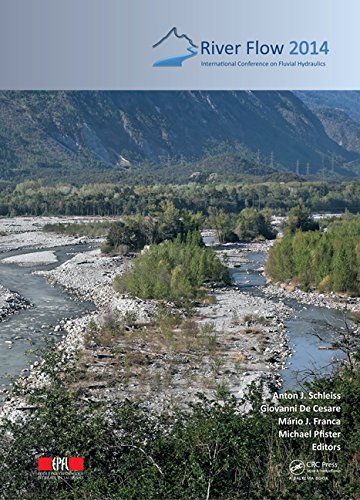

Most ebook files are in PDF format, so you can easily read them using various software such as Foxit Reader or directly on the Google Chrome browser.
Some ebook files are released by publishers in other formats such as .awz, .mobi, .epub, .fb2, etc. You may need to install specific software to read these formats on mobile/PC, such as Calibre.
Please read the tutorial at this link: https://ebookbell.com/faq
We offer FREE conversion to the popular formats you request; however, this may take some time. Therefore, right after payment, please email us, and we will try to provide the service as quickly as possible.
For some exceptional file formats or broken links (if any), please refrain from opening any disputes. Instead, email us first, and we will try to assist within a maximum of 6 hours.
EbookBell Team

4.4
52 reviewsThe behaviour of river systems is a result of the complex interaction between flow, sediments, morphology and habitats. Furthermore, rivers are often used as a source of water supply and energy production as well as a waterway for transportation. The main challenge faced by river engineers today, in collaboration with environmental and ecological scientists, is to restore the channelized rivers under the constraints of high urbanization and limited space, as well as sustainable water use.
During the seventh International Conference on Fluvial Hydraulics “River Flow 2014” at École Polytechnique Fédérale de Lausanne (EPFL), Switzerland, scientists and professionals from all over the world addressed this challenge and exchanged their knowledge regarding fluvial hydraulics and river morphology. This book comprises the proceedings of the high quality contributions of the participants, which reflect the state-of-the-art in the fields of river hydrodynamics, morphodynamics, sediment transport, river engineering and restoration. The conference was organized under the auspices of the Committee on Fluvial Hydraulics of the International Association for Hydro-Environment Engineering and Research (IAHR). Past River Flow conferences have witnessed a significant increase in participation of our community of river engineers and researchers, confirming the need for such a forum.